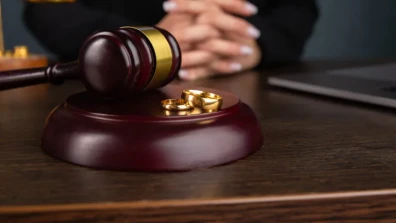There are many legal formalities involved in the registration and running of a company. It becomes more difficult if the roles of the directors and that of managing staff have not been defined and explained in categorical terms.
If you are a director of a company, then you must know with certainty what are your rights and responsibilities?
In this article, we will be shedding light on the portfolio of a director in company and rights and obligations of the directors in the company.
Table of Contents
Who is Director in a Company?
A Director is a person ‘who manages the affairs of a company’. It is incumbent upon a company to have at least one director who can either be a defacto director or shadow director as the case may be.
Your Rights as a director of a company
A director hold a significant character in the business affairs of a company. For the effective management and decision making on important issues, directors sit together to monitor and drive growth of a company in one way or the other. However key rights of a director of a company are as follow: -
- Right to manage affairs of a company including but not limited to planning and operations.
- Right to information related to the business affairs helping them to ensure transparency and accountability.
- Right to get remuneration against the services rendered. The remuneration may include salary, bonus and other incentives as per policy of the government.
- Right to declare dividend is another right of a director of a company whereby he shares financial performance of the company as per legal and regulatory requirement.
- Right to represent the company in legal and formal proceedings alongwith other business meetings and negotiations etc.
Duties of a Director
Director has a pivotal role in the administration of the company and day to day affairs of a company. Therefore, many responsibilities have been imposed on his shoulders, which are inter alia: -
- Duty of Care is expected to be exercised by him with great caution, care, skill, diligence while making decision and acting for the benefit of the company.
- Duty of loyalty is also attached to his character and he is supposed to act faithfully and honestly to safeguard the interest of a company. He is also expected to avoid conflict of interest and always prefer welfare of the company and its director than personal gain for himself.
- Duty of Disclosure is another responsibility on him to share his interest and impartiality in the decision making process in order to avoid stigma of relationship support.
- Duty of compliance is consider the laws and regulations and keep following them and also to formulate the policies in view of the statutory obligations. Needless to mention that if the company is found violating the laws, regulations and, or code of governance; the company may fall prey to impositions including but not limited to winding up of a company.
- Duty of accountability keeps the director accountable to shareholders, other stakeholder and the regulatory bodies in their day to day affairs. Thus, directors are expected to keep their actions, business dealing, policies and decision making in compliance with the rules and regulation.
Effects of Regulatory Compliance
It has been observed that if directors of a company provide their maximum input, work hard for positive growth of a company and keep following the guidelines in place; same may render following benefits: -
- Effective governance
- Risk management
- Stakeholder confidence
- Legal compliance
- Ethical leadership
Failure in Compliance by a Director
If directors in a company are found to have violated the regulations or have done something in contravention with the policies or any other act prejudicial to the welfare of the company; they are likely to face bitter consequences: -
- A director found guilty can be charged criminally and held liable for imprisonment up to 5 years or fine of $ 200, 000/-.
- He may be disqualified from holding any such office in the future.
- He may be held personally liable for the losses occurred to the company.
If you are seeking legal assistance, consider reaching out to DV Solicitors, Bedford where you can find comprehensive support from our expert legal team.
Conclusion
It has been inferred from the above discussion that a director in a company assumes significant character holding meetings, passing material decisions, monitoring and keeping control of accounts, day to day expenses.
To manage such large scale activities he has been empowered by giving many rights to manage, and control the business of a company.
conversely, his duties to remain accountable for the accounts and putting compliance with the rules and regulations is also an integral part of his position; failing which he can be held responsible for the losses caused to the company by the wrong decisions made by him.


















